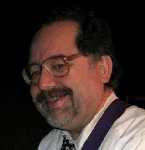I have become hesitant at accepting solutions that promise to deliver us from the two extremes. I find the interpretist model falling into this category at times. On the one hand, constructivism as one example says that it is neither subjective nor objective, but a horse of a different color (to use the words of the Wizard of Oz). This means that constructivism is to some extent a reaction to both objectivism and subjectivism, but is this actually the case. Could it be the case that constructivism is posited (pun intended) to be the new objectivism, or perhaps even the new subjectivist. Let me offer a case in point. Constructivism teaches us that there is no one way, no Truth (big T), but many truths (little t). So far so good, but is that really the case? If there is actually no Truth, then the statement itself (there is no Truth) can not be valid, because it poses as an absolute, what would have formerly been called a Truth. On the other hand, if there are many truths, then one of the many truths may be an absolute Truth, such as humans need water and air to exist. It is easy to assent to a interpretist model in social sciences, literature, or humanities, but it is not so easy to do so in the physical world. The physical world cares little of what humans think about it, it has no conscience, no consciousness, and no social-constructions of its own.
Let me propose, since there are many truths, that constructivism and the other models are only one of many models and that it may be very possible that no one model can answer all questions, just as no one man or woman can possess all the truth. That interpretist models can answer some questions in some situations (social constructions), may be a reasonable assumption. That intrepretist models can best answer all questions in all situations is a generalization which is unwarranted. That we may some day find a more useful model that can answer many more questions and possibly replace constructivism or other interpretist models is altogether likely. We have seen it happen at least three times in the 20th century educational contexts (idealism => logical empiricism => behaviorism => constructivism). It seems that total annihilation of one model by the next is never complete, and few models can expect eternal life in the academy.
It may be that case that constructivism is the current dominant paradigm because it best explains the dominant mode of teaching, not that it best explains the modes of learning. There actually seems to be no logical connections between the theoretical foundations of constructivism, how people learn (social construction of knowledge), and what constructivist teachers should do (Lerman). At the least, social constructions of meaning (or sense) are not limitless (Crotty), but very limited indeed. If this were not so, communicating with other humans (even in the same language), writing a book, giving directions to a male of the species, or typing on the computer would prove near impossible. In many cases, a cigar is just a cigar. And on second thoughts, I might retract the statement about giving directions to keep from looking ignorant before my female colleagues.
Dave
Monday, October 27, 2008
Subscribe to:
Post Comments (Atom)

No comments:
Post a Comment